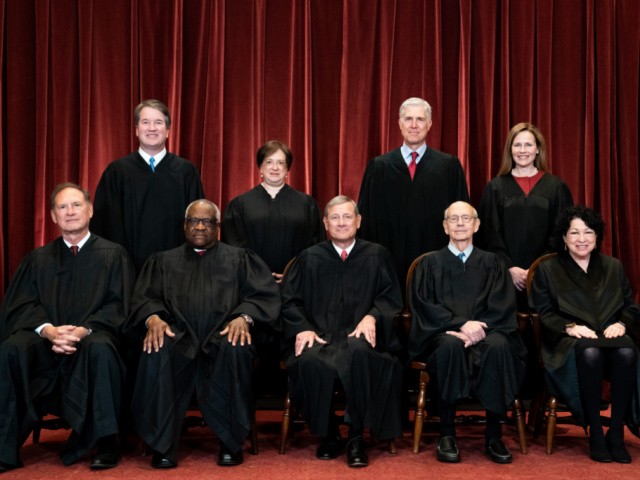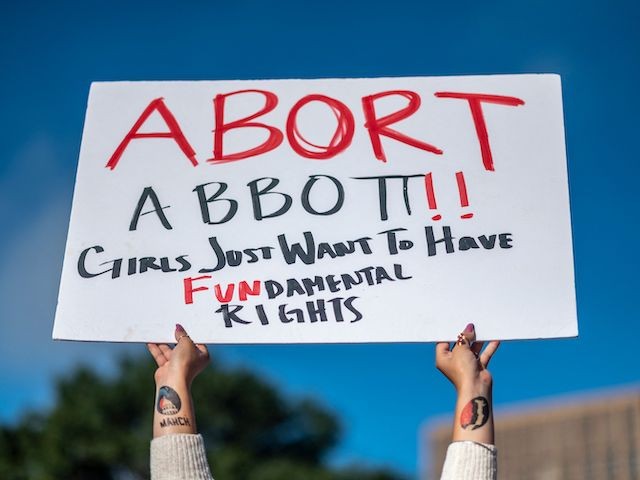Supreme Court to Hear Arguments in Texas Abortion Law Case Next Week
The Supreme Court is set to hear oral arguments on Monday, November 1, regarding the constitutionality of the Texas Heartbeat Act, which effectively bans abortions in the state after six weeks gestation when a fetal heartbeat is detected.
In a surprising order last week, the Court granted review – called a writ of certiorari – sought by several abortion clinics, including Whole Women’s Health and various Planned Parenthoods. Although the Supreme Court granted certiorari before judgment several times during the Trump administration, typically multiple years pass without the justices short-circuiting the normal process of appellate review.
And even when the Court does “grant cert” before the relevant appeals court has rendered its judgment, it usually still goes through a normal process of filing briefs and preparing for oral argument, which typically takes more than three months. Here, by contrast, the justices had just granted cert on October 22, ordered all the briefs to be filed within days, and scheduled oral arguments scheduled for the following week – just ten days from granting review to hearing the case.

Members of the Supreme Court pose for a group photo at the Supreme Court in Washington, DC, on April 23, 2021. Seated from left: Associate Justice Samuel Alito, Associate Justice Clarence Thomas, Chief Justice John Roberts, Associate Justice Stephen Breyer, and Associate Justice Sonia Sotomayor, Standing from left: Associate Justice Brett Kavanaugh, Associate Justice Elena Kagan, Associate Justice Neil Gorsuch, and Associate Justice Amy Coney Barrett. (Erin Schaff-Pool/Getty Images)
The justices will hear arguments from two separate cases which are being converged. In the case brought by Whole Women’s Health, the Court will be asked to weigh in on the law’s private enforcement mechanism, and in the second case, United States v. Texas, the Court will ultimately decide whether President Joe Biden’s Department of Justice has the right to sue Texas in order to block the law.
The legislation was signed by Texas Gov. Greg Abbott (R) in May and went into effect on September 1. Since women do not often detect pregnancy prior to the sixth week, the law effectively bans abortions in the state.
The law is different from other pro-life legislation tried in the past, in that the general public — instead of the government — can enforce it. Any private citizen may file a civil lawsuit against an abortion provider or any other individual who “aids or abets” a “criminal abortion.” Abortionists and those who “aid or abet” an abortion after a fetal heartbeat is detected must pay damages of at least $10,000 for each abortion performed or assisted.
On October 15, a three-judge panel of the U.S. Court of Appeals for the Fifth Circuit voted 2-1 to temporarily reinstate the law while appeals are ongoing, reversing a lower court’s ruling that had blocked enforcement of the pro-life law. The federal appeals court ruled that the Texas Heartbeat Act can remain in effect while litigation continues over whether the law is constitutional.

A woman holds a sign in reference to Texas Governor Greg Abbott as protesters take part in the Women’s March and Rally for Abortion Justice in Austin, Texas, on October 2, 2021. (Sergio Flores/AFP via Getty Images)
The Supreme Court previously ruled 5-4 in September not to block the law while legal challenges proceeded in lower courts. Abortion providers have claimed the law heavily reduced abortion access and goes against Supreme Court precedent set by Roe v. Wade in 1973. Woke companies, celebrities, and leftist politicians alike have expressed outrage at Texas’s pro-life law as an attempt by Republicans to control women’s bodies. Pro-life organizations, in contrast, have celebrated the Texas Heartbeat Act for recognizing and protecting the personhood of unborn children.
The State of Texas has asked the Supreme Court, “if it reaches merits,” to consider overturning Roe v. Wade and Planned Parenthood v. Casey, both decisions which declared abortion to be protected by the U.S. Constitution. The Court has not commented on Texas’s request, though another case concerning Mississippi’s pro-life legislation, which is set to be heard in December, directly challenges those precedents.
The case is Whole Woman’s Health v. Jackson, No. 21-463 in the Supreme Court of the United States.





Comments are closed.